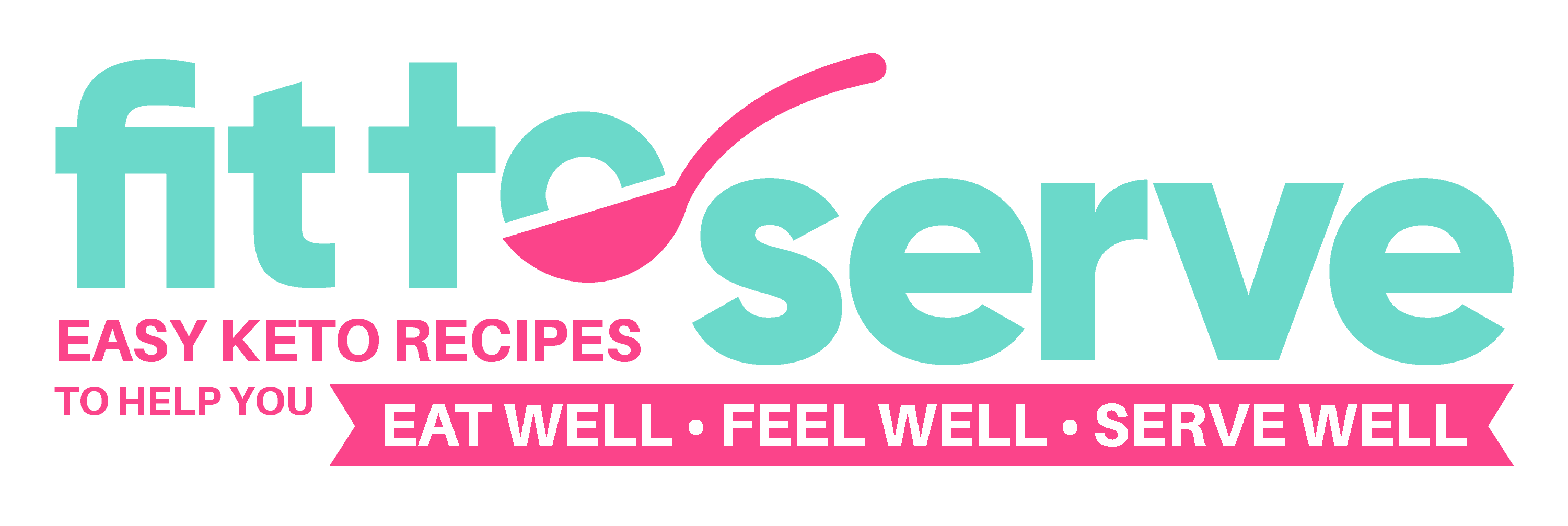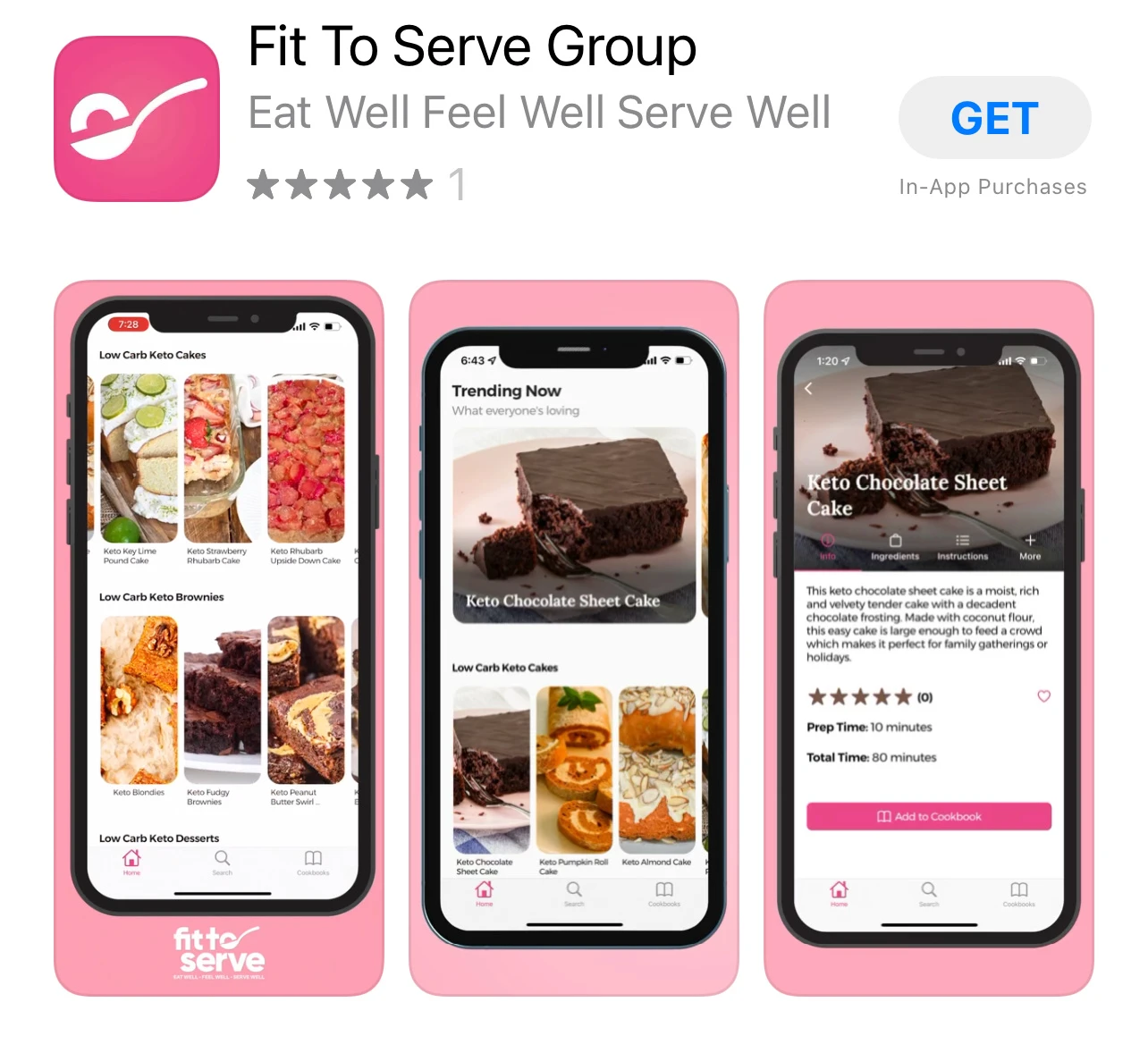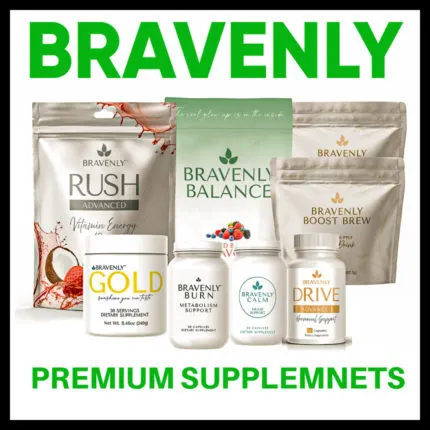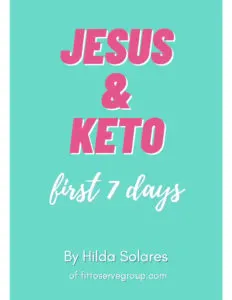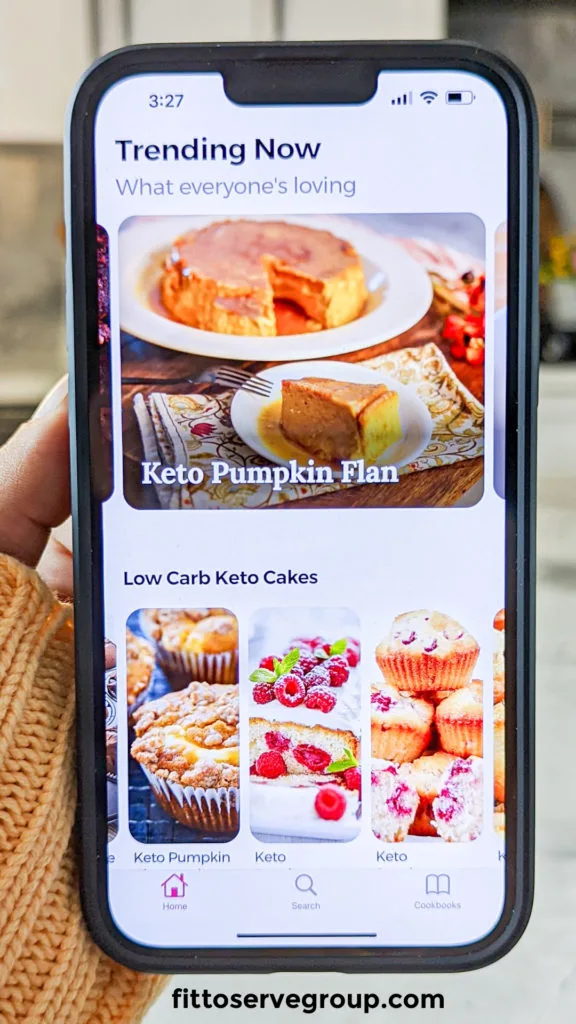Are you wondering if a low-fat diet is actually healthy? I am going to share with you why I think there are low-fat dangers you need to be aware of.
Do you know that when the low-fat guidelines hit the scene, our sugar consumption spiked? Why? Because low-fat foods taste terrible! Once the fat is stripped away, you’re left with very bland food.
What was the food industry’s response? Add more sugar, of course! Sugar is not fat; it’s a carbohydrate. This means a label that reads low-fat gives a deceiving assurance that you are consuming “healthy” food.
Dangers Of Low-Fat Diet
A low-fat diet also promotes an increase in vegetable oils. With an innocent-sounding name like “vegetable” in front of oils, we have the potential to be fooled.
The problem with manufactured vegetable oils is that although they may reduce cholesterol in the short term, long-term they have been linked with heart disease and inflammation.
Low-fat diets recommend a high consumption of whole wheat. Once again, we are led to believe that the word “whole” implies health.
The main problem with this advice is that a large portion of our population is sensitive to wheat gluten and may not even know why they are experiencing symptoms like fatigue, pain, and gut issues that stem from gluten.
Can you see how some of the low-fat diets aren’t helpful?
A Low-Fat Diet Can Lower HDL, Our “Good” Cholesterol and Raise Triglycerides
Study after study points to the benefits of having high levels of HDL in the prevention of heart disease. How do we raise our HDL levels?
Do you know a high-carb diet lowers our good cholesterol?
The high levels of triglycerides in our blood cause the liver to burn excess carbs, especially fructose, into fat.
What’s the best way to lower blood triglycerides? By doing the exact opposite of what a low-fat diet advises, eat a low-carb diet high in good fats.
Consuming A Low-Fat Diet Can Crowd Out Healthy Foods
All the fear-mongering tactics brought on by the low-fat diet have caused our consumption of animal foods to decrease.
Unfortunately, lowering our animal food intake puts us at a disadvantage when it comes to getting enough healthy fats. Do you know our bodies need fat to function properly?
No one is arguing that factory-farmed, grain-fed animal products aren’t ideal choices. However, when animals are raised and fed correctly, the result is nutritious food.
What about my vegan friends? It’s not a problem. Just get your healthy fats from high-fat plant foods and oils.
Saturated Fats Can Be Healthy
We do not need to fear saturated fat and cholesterol.
In fact, they have now proven that it’s actually the opposite; we need these fats. Need more reassurance as to low-fat diet dangers? Check out these studies.
It’s important to remember that not all fats are created equal and that they do not affect the body in the same way.
While processed and refined fats found in pre-packaged foods and food establishments can be harmful, other types of natural fats have beneficial and even life-extending properties.
When we don’t get the healthy fats we need in our diets, we find ourselves feeling tired, moody, hungry, and unable to deal with cravings.
Don’t Blame Saturated Fats For What Processed Carbs Have Done
So why are we blaming the rise in obesity, diabetes, and heart disease on saturated fat? It beats me because these diseases are relatively new, and these foods have been with us for thousands of years.
In fact, populations throughout the world, like the Inuit and the Masai, have consumed almost all of their calories from animal foods and remained in excellent health. It makes you stop and think about what went wrong.
Because of the unfair stigma of saturated fats, foods like meats, eggs, dairy, and coconut products have been avoided because of their high fat content.
Unfortunately, doing so makes it harder to get omega-3 fatty acids, CLA, vitamins, minerals, and antioxidants naturally.
Healthy Fats=Healthy Hormones
The truth is foods that are naturally high in saturated fat and cholesterol tend to be highly nutritious and perfectly healthy. However, a low-fat diet discourages the consumption of these foods.
One of the biggest benefits of including more fat in our diet is its ability to help control hormones, especially insulin.
In contrast, a low-fat diet causes hormone imbalances and insulin resistance, which is linked to diabetes, weight gain, cognitive issues, and much, much more.
Dr. David Perlmutter, MD, does a fantastic job eloquently explaining this in his book “Brain Maker”
For the greater part of the past 2.6 million years, our ancestors’ diets consisted of wild animals and seasonal fruits and vegetables. Today most people’s diets are centered on grains and carbs — many of which contain gut-blasting, microbiome-damaging gluten whose downstream effects reach the brain. Even setting aside the gluten factor, one of the main reasons that consuming too many grains and carbs is so harmful is that they spike blood sugar in ways other foods, such as fats, meat, fish, poultry, and vegetables, do not.
Most Low-Fat Diets Are High In Sugar
All this bad dietary advice caused us to swap fat for foods high in sugar. What came with this swap? Astronomical rates of diabetes and obesity. “It’s now about time to realize that the low-fat diet just didn’t work,” Dr. David Ludwig, Harvard.
It appears like the official low-fat dietary guidelines have swayed us wrong, so why do we keep trusting government agencies and massively lobbying food industries for food recommendations?
The latest 2015 USDA guidelines did remove the former advice to cut down on fat. However, decades of bad advice continue to have a negative effect on people’s health.
Unfortunately, the low-fat diet has been a massive public health failure that is still causing significant harm.
Why? Well, eating a high-carb, low-fat diet has been hard-wired in the minds of many. It’s challenging to undo the damage of this way of thinking in a short amount of time.
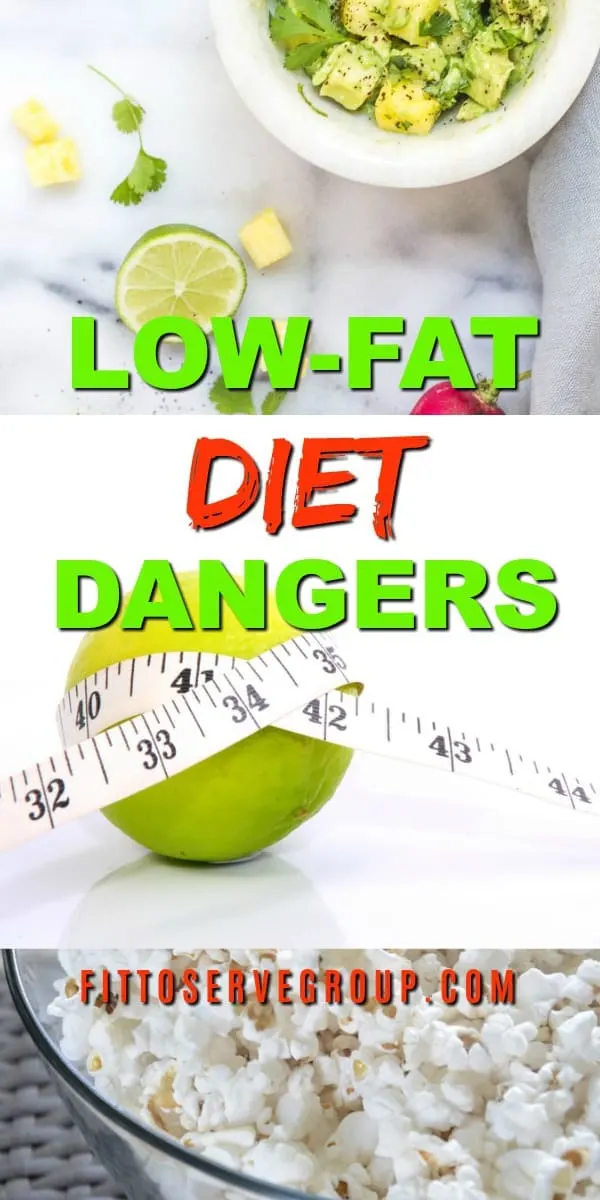
A Paradigm Shift Is Needed
Waiting until the research catches up with this paradigm shift in order to change our way of eating may prove disastrous for those who are already suffering from the effects of a low-fat diet.
A diet high in carbohydrates, which includes whole grains, has been the foundation of a healthy diet for decades, with a recommendation of 11 daily servings of bread, cereal, rice, and pasta, but in reality, this high consumption of carbs has been a big contributor of many diseases.
According to Dr. Ludwig, “We now need a frank accounting of past and current dietary recommendations and comprehensive measures to mitigate persisting harms from the low-fat diet era.”
Do you know that, despite what you may have heard, butter is much better for your health than margarine?
I grew up in a home where we all ate real butter. It was customary to see my parents fry their eggs in butter and use it liberally. Because of this, as children, we had no problem slathering it on our food. Hmmm, why butter, not margarine? Let’s trace back to its first arrival in my life.
One day, our beloved butter was replaced with a tub of margarine. My well-meaning mother explained that what was in the plastic container was healthy. Even then, I remember thinking, this doesn’t taste the same, but at least it spreads quickly.
Dad Stuck With Butter
My dad, however, didn’t take my mother’s advice and stayed faithful to butter. He left his butter on the kitchen table during the day, allowing it to become spreadable.
I can still remember my mom reprimanding him. “Pero Pablo, no comas tanta mantequilla”! Translation: Pablo, don’t eat so much butter; it’s not good for you!
Dad would roll his eyes, ignore her, and enjoy his butter. Why butter, not margarine? Well, Dad wanted no part of the fake stuff.
But Butter Taste Better?
As a teenager, I tried to be compliant with my mom’s insistence to use margarine, but I never liked the flavor. So, I rebelled and began baking with my dad’s butter. Everyone enjoyed my baked goods. Of course, they did. They were made with real butter!
Here’s the thing: my Papi is in his 80s and has never needed blood pressure medication or suffered from clogged arteries. My Mami, on the other hand, has taken medication for years to reduce hypertension and had to have a few stents put in her arteries to unclog them.
For years, we just attributed my dad’s good health to great genetics. Honestly, today, I am not too sure his wonderful health can be chalked up only to great genes.
Butter Is Real Margarine Is Synthetic
Why butter, not margarine? Well, when you consider that butter is all-natural and easy for our bodies to identify, versus margarine, a highly synthetic concoction, you are left wondering.
Does it make sense to believe that a man-made, low-grade oil full of additives is healthy? In an era where we are being encouraged to eat less processed foods to avoid chemicals, the idea of margarine being a healthy choice just seems wrong.
Not only does butter taste way better, but it’s also been eaten for centuries without health consequences. Made by the simple process of churning the fatty layer of cow’s milk, it’s a natural product.
By contrast, margarine is a highly processed food, full of emulsifiers, artificial colors, and ingredients a few of us can pronounce.
Do you know that margarine isn’t actually yellow? That’s right; it’s an ugly shade of grey. I highly doubt anyone would be eating margarine if it didn’t have a heavy dose of colors and chemicals masking its true identity.
What Really Is Margarine Anyway?
Margarine’s main ingredient is vegetable oil, a liquid at room temperature. In order to have firmer consistency and a longer shelf life, it needs to go through the process of hydrogenation.
Hydrogenation is what turns liquid vegetable oil into trans fats. Yes, you read right—trans fats have proven to clog our arteries!
It’s these dreaded trans fats that contribute to heart disease, cancer, hormonal issues, infertility, and learning disabilities in children. Am I the only one who sees something wrong with this picture?
Perhaps you have not read the latest scientific research that assures us that we need not fear naturally occurring fat. The fat in coconuts, dairy, and animals has been vilified unnecessarily.
The days of thinking that saturated fats are bad for you are coming to an end. There is a growing shift in the scientific world indicating that natural saturated fats shouldn’t be feared, perhaps even embraced.
Cholesterol Levels Needing Clarity
Do you know what I think we really need to be concerned about? The so-called government health advice in regards to heart disease, cholesterol levels, and their plea to stop eating butter and other natural fats.
For years, we were told to embrace margarine and ban butter. Not only was it poor advice in my book, but the truth is also that margarine use can be detrimental to our health.
Did you know that heart disease was rare in developed nations at the turn of the century? With the introduction of margarine came the rise of heart disease; as butter consumption dropped, so did our health. It makes you wonder, huh?
The following are just some reasons why I trust the cows more than the chemists and why I recommend you choose butter, not margarine.
Butter Benefits
- Antioxidants: Shields the body from free-radical damage.
- Butyric acid: A short-chain fatty acid that supports colon health.
- Conjugated linoleic acids: CLAs help fight cancer, build muscle, and boost our immunity.
- Iodine: Is the key to our thyroid health.
- Vitamin D: Helps our body absorb calcium for strong bones and reduces our risk for osteoporosis, heart disease, and cancers.
- Lauric acid: A medium-chain fatty acid. It encourages the body’s immune system.
- Lecithin: Helps protect our cells from oxidation.
- Vitamin A: A key vitamin for eye and endocrine health.
- Vitamin K: Needed for proper blood clotting and bone health.
- Vitamin E: Its anti-inflammatory properties help speed up wound healing and strengthen immunity.
Join Our Jesus And Keto Movement
Looking for an online support system to help you stay the course on keto? As a family, we came to the keto diet, looking at it from a Christian perspective. As believers, we live our lives supported by God’s grace.
So when the Holy Spirit led us to combine our Christian faith and the keto diet, we did so in hopes of finding lasting transformation. When we followed the Holy Spirit’s prompting, we got on the path to real transformation.
Knowing firsthand the benefits of this decision, we have created a closed Christian group that is using the keto diet to transform their lives. We invite you to join our Private Facebook Group and see if it’s not the key you have been missing.
Be sure to request our FREE Jesus and Keto E-Book (First 7 Days). We hope it blesses you.
Fittoservegroup Keto App
Looking for a fast way to access our keto recipes? We’ve got you covered. There’s an app for that. Yup, there’s a Fit To Serve Group App and it’s going to make your keto diet a delicious breeze!
Access hundreds of recipes that are all sugar-free, gluten-free, and keto-friendly.
Enjoy early access to recipes before they go live on the website. Plus, bonus recipes that are exclusive to the app. Make your own personal cookbooks that you can use to organize your favorite recipes.
Search recipes by title, ingredients, keywords, and categories, and of course, every recipe shows complete nutritional facts. Get the Fit to Serve Group App for easy-to-follow keto recipes made with easy-to-source ingredients.
The app is loaded with hundreds of yummy recipes for breakfast, lunch, dinner, snacks, and even desserts!
Learn more by visiting our Fit To Serve Group App Page.
